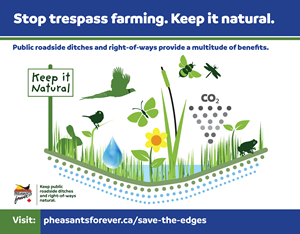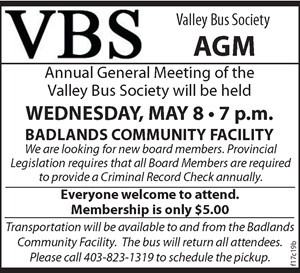
Nelson Farms was named the BMO Farm family for Starland County at this year’s Calgary Stampede.
In the old days, a farmer learned to farm by farming – usually with his father or another family member. These days, most young people get some post-secondary education in order to be up-to-date with the latest and most modern thinking on efficient food production. Twenty years ago, Rod Nelson went to SAIT and studied drafting. “I finished it, but I didn’t pursue it,” he says. Instead, he came back to the family farm just northwest of Rumsey, land that has been in the family for over a century, to farm with his father.
Today, Rod and his father, Jim, work a combined 4,000 acres of cropland with another 2,000 acres of pasture. Jim is no longer involved with the cattle side of things, and Rod takes the lead on many of the day-to-day operational decisions. Still, Rod says, it’s good to have his father’s input because, “Sometimes there’s some knowledge from him being here an extra 20 years.” The Nelson Family Farm is the 2014 BMO Farm Family of the Year representing Starland County.
This year, the Nelsons seeded about 1300 acres of canola, 400 acres of peas with the rest split between barley and wheat. They try to rotate crops so that canola only goes on a piece of land every third year. “Continuous cropping and direct seeding has really changed things,” Rod says. “It sure helps with maintaining some moisture in the soil and productivity seems to be better all the time. When you talk to Dad, he’ll tell you that what we expect to get now was a really, really good crop 30 years ago.” Part of the improvement in yields, Rod thinks, is new varieties of seed – “especially canola. I guess there’s a lot more money in canola so there’s been a lot more research on canola.”
“The biggest thing with direct seeding is the price of gyphosphate,” Rod continues. “Thirty years ago you couldn’t afford to use it like you do now and weeds were a huge issue. Our sprayer now has the greatest number of hours of all our equipment.” Efficient spraying comes courtesy of GPS and autosteer. “It’s amazing how it works, but now that you’ve got it you can’t do without it,” Rod says. “When you’re in the tractor you can relax and watch what’s going on rather than just making sure you’re going straight.”
It’s now possible for farmers to keep completely current on developments in the world that could affect markets and prices, notes Rod. “Smart phones have changed things in the last five years.” He gives the current situation between Ukraine and Russia as an example. “Forty or fifty years ago, it would have taken three weeks before we knew anything about it.” There is such a thing as too much information these days, he thinks. “Farming could have been a lot more work before – but maybe it was a lot more enjoyable at times.”
The Nelsons have been involved in the community as their children grew up. As his son begins to contemplate his career options, Rod says his advice was, “Go and work for someone other than me and experience life a bit.”
Being his own boss, including the privacy and the freedom of being on the land are what Rod says are the best things about farming. “If you didn’t like it, you couldn’t do it,” he says. “It’s not going to be successful if you’re not enjoying it.”





















